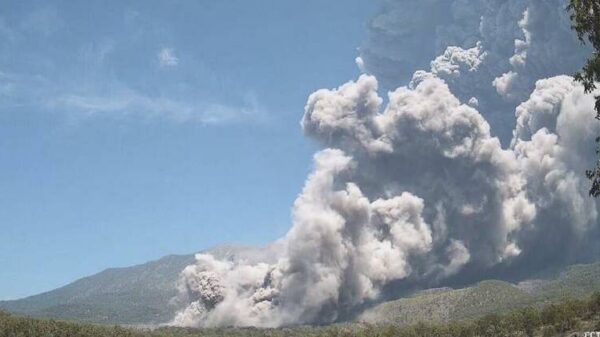Israeli Prime Minister Benjamin Netanyahu and U.S. President Donald Trump have indicated a significant shift in their approach to negotiations regarding Gaza, suggesting on Friday that talks with Hamas have effectively stalled. Both leaders expressed skepticism about Hamas’s willingness to engage in a deal, prompting Israel to explore “alternative” methods for securing the release of hostages taken from Israel. Trump’s statements emphasized a more aggressive stance, indicating that Hamas leaders would be “hunted down.”
The remarks signal a toughening of positions, leaving little prospect for negotiations aimed at a ceasefire. This development comes as international concern grows over the humanitarian crisis in Gaza, where food shortages and malnutrition are escalating alarmingly.
Emmanuel Macron, the President of France, has become the first major Western leader to recognize an independent Palestinian state in response to the deteriorating situation. In contrast, leaders from Britain and Germany have refrained from making similar commitments at this time. Australian Prime Minister Anthony Albanese has also issued strong criticism of Israel’s actions in Gaza, with Foreign Minister Penny Wong hinting at the possibility of recognizing Palestine at the United Nations in September.
On Thursday, both the Israeli and U.S. delegations withdrew from ceasefire discussions in Qatar, shortly after Hamas responded to a truce proposal. Initial reports suggested that the Israeli withdrawal was intended for consultations and did not indicate a crisis in negotiations. However, Netanyahu’s subsequent comments suggest a hardened stance.
U.S. envoy Steve Witkoff attributed the deadlock to Hamas’s actions, a view echoed by Netanyahu. In contrast, senior Hamas official Basem Naim countered that the discussions had been constructive and that their proposals could lead to a resolution if Israel were willing to negotiate in good faith.
The proposed ceasefire would have paused hostilities for 60 days, allowed humanitarian aid to flow into Gaza, and facilitated the release of some hostages in exchange for Palestinian prisoners held by Israel. Disputes over troop withdrawals and the future of the ceasefire beyond the initial period have stalled progress.
As the humanitarian situation deteriorates, reports indicate that mass hunger is affecting Gaza’s population of 2.2 million. Aid organizations have warned that food supplies are critically low, a situation exacerbated by Israel’s restrictions on supplies since March. Although Israel announced it would permit aid drops into Gaza, Hamas dismissed this as insufficient, calling for a more sustained humanitarian corridor.
The Israeli military confirmed that it has agreed to facilitate aid deliveries, but Hamas’s leadership has criticized the approach. Ismail Al-Thawabta, director of the Hamas-run Gaza government media office, emphasized that the region needs a consistent flow of aid rather than temporary solutions.
The ongoing conflict has resulted in significant casualties. Gaza medical officials reported that nine more Palestinians died from malnutrition or starvation within a 24-hour period. The escalating hunger crisis has led to a reported death toll of nearly 60,000 in Gaza since the conflict reignited on October 7, 2023, when Hamas fighters attacked Israeli towns, resulting in approximately 1,200 fatalities and the capture of 251 hostages.
The violence has continued unabated, with Israeli airstrikes claiming the lives of at least 21 Palestinians on Friday alone, including five individuals killed in an attack on a school housing displaced families in Gaza City. The body of journalist Adam Abu Harbid, who died in a strike, was carried through the streets, highlighting the dangers faced by reporters in the region. Mahmoud Awadia, another journalist present at the funeral, accused Israeli forces of intentionally targeting the press.
In response to France’s recognition of Palestinian statehood, both Israel and the U.S. criticized the move. Netanyahu labeled it a “reward for terrorism,” reflecting a broader sentiment among Western nations that have historically supported a negotiated approach to Palestinian independence.
Both Britain and Germany have reiterated their commitment to Israel, with Germany’s government spokesperson stating that the security of Israel remains paramount. Current discussions are focused on addressing immediate humanitarian needs in Gaza while navigating the complexities of the ongoing conflict and the quest for lasting peace.






























































